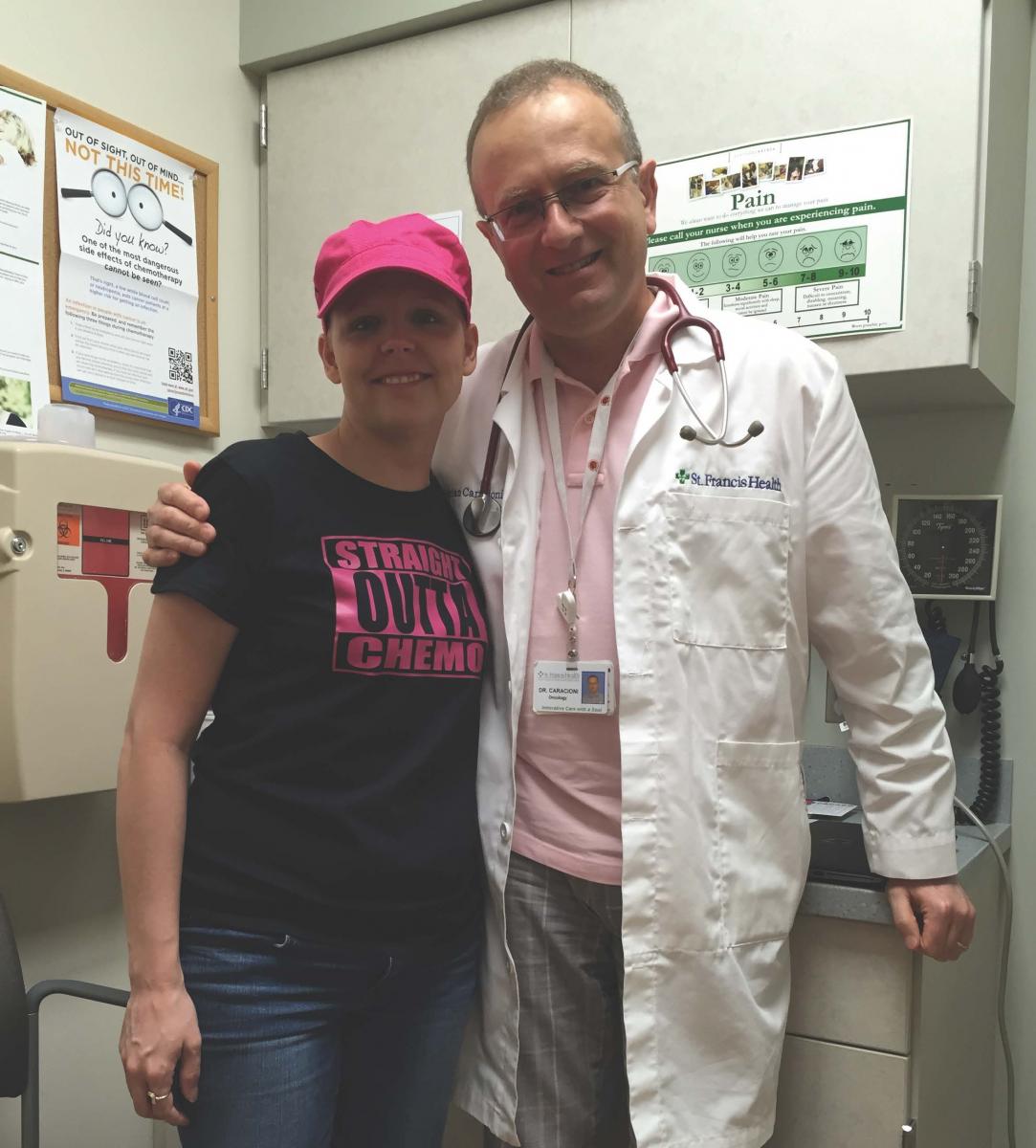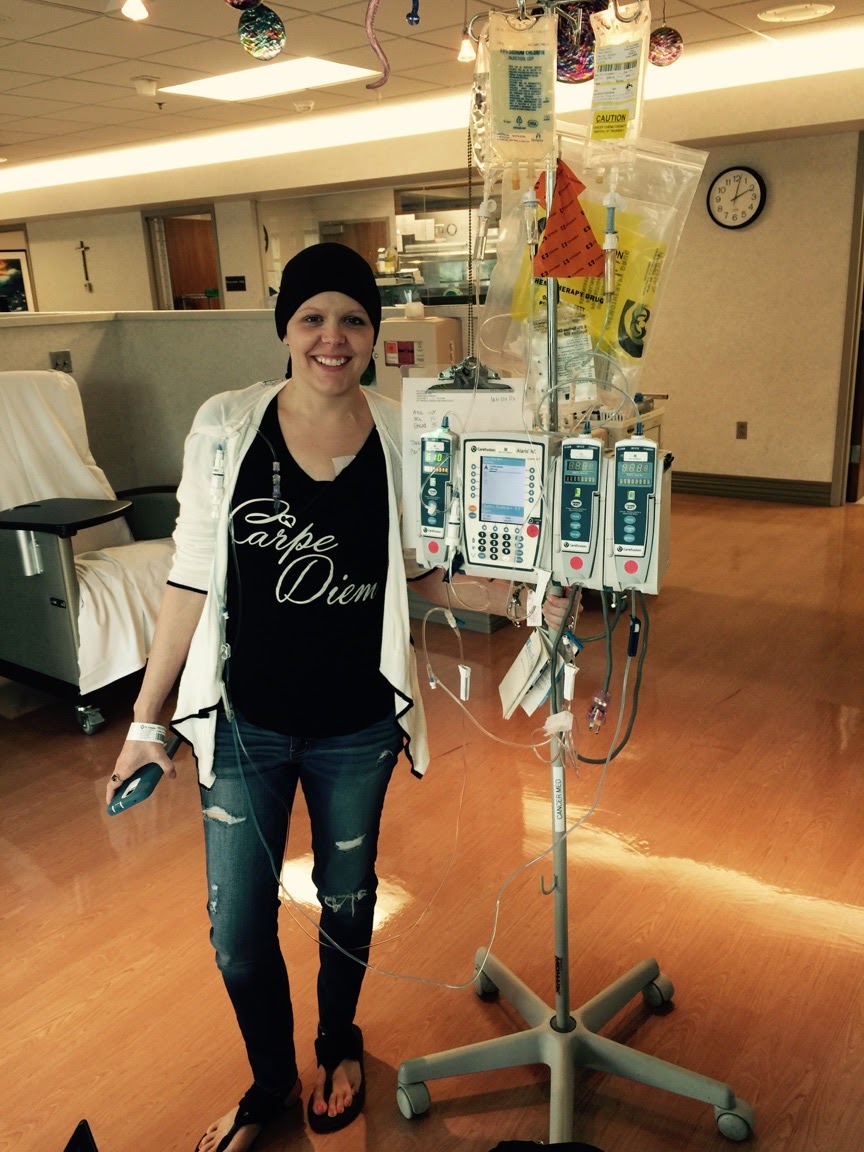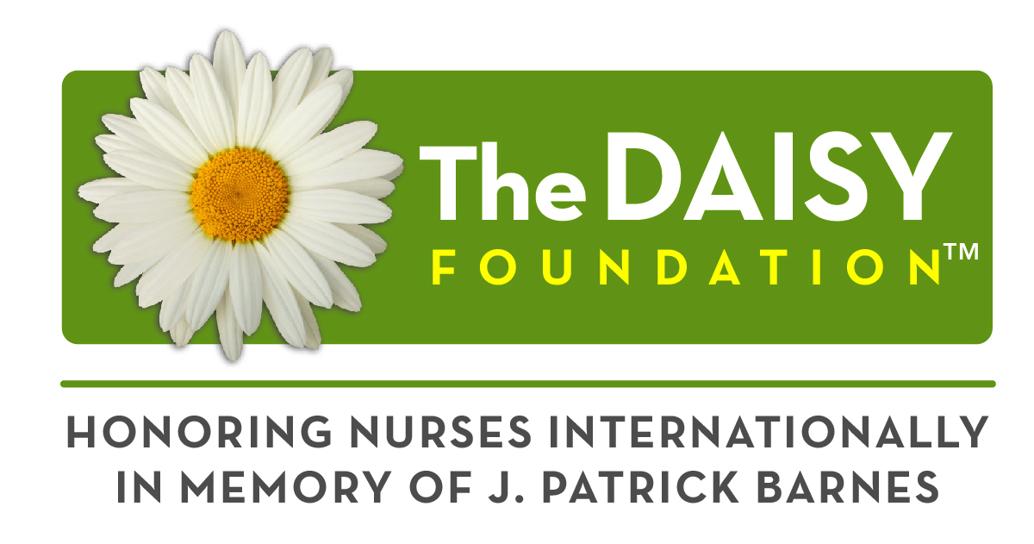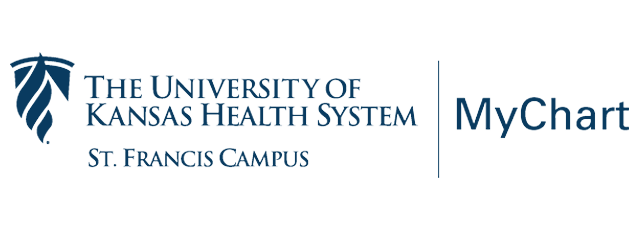Breast Cancer Survivor Shares Story of Resilience and Strength
Amy Hedstrom was diagnosed with Stage 3 Triple Negative Breast Cancer at the young age of 32. She noticed a very small lump in November of 2014 and went to get an ultrasound where nothing appeared. It wasn’t until April of 2015 that she noticed the lump was growing and went to get the lump biopsied, where she was then diagnosed. Upon diagnosis, Amy was referred to The University of Kansas Health System St. Francis Campus Cancer Center, where she met her cancer specialists, Adrian Caracioni, MD, and Amy Greenfield, APRN, and her nurse navigator, Januari Sawyer. 
Amy was young, and her breast tissue was dense, which explained why the tumor didn’t appear on a mammogram or an ultrasound. The MRI later showed that the tumor was 5.1 cm and reached two lymph nodes. She had never scheduled a mammogram prior because it was never recommended. She was young and had no family history or risk factors that indicated she should do so.
According to her oncology physician, Dr. Caracioni, Amy’s diligence in monitoring the lump is what helped catch the cancer early enough to provide life-saving treatment. “Currently, the U.S. Preventive Services Task Force recommends against self-breast examinations for those at average risk of breast cancer. The emphasis instead is on knowing your body and being aware and able to detect changes. Most of these changes are found during normal activities such as dressing and bathing. Amy did exactly as one should. She noticed ‘something new’, advocated for herself, and sought out answers.”
She started chemo on April 30, 2015 and finished her chemotherapy on Sept. 10, 2015. She then had a double mastectomy, full node dissection, and her first reconstruction surgery on Sept. 29, 2015. At the time of surgery, pathology showed no cancer cells, and she had a complete pathological response to chemotherapy! She started radiation in Nov. of 2015 and finished on Dec. 30, 2015. She feels lucky that she built such a strong bond with her doctors during treatment and that it has continued as they’ve kept a close eye on her over the years.
Being only 32 at diagnosis, Amy’s most significant struggles during treatment were not knowing if she would be around to see her two kids grow up. Her son was an eighth-grader at the time, and her daughter was in pre-K. Since then, she has watched her son walk the stage at high school graduation and watch her preschooler grow up to be a fifth-grader. She is grateful to have had such a great medical team during her journey that allowed her to put her trust in them and focus on getting better. Amy shared that “cancer comes with a lot of mental and emotional struggles, and those don’t just go away once treatment is finished. It gets a little less stressful each year I get further out, but the fear of recurrence will always be with me.”
 Amy Greenfield, oncology nurse practitioner, says “Once a diagnosis of cancer happens, panic sets in, which is normal and even expected. However, once plans are outlined, there is a clear goal and treatment starts, it’s doable. Not easy, but doable. Amy, like every one that faces treatment was scared and anxious but jumped in and was a warrior throughout her whole treatment plan. There were side effects and scheduling conflicts, but that is all part of it; part of our jobs as providers and patients is to communicate and work through issues. As providers we cannot help with problems if we do not now they exist. Amy has always been her own advocate and calls or uses MyChart to let us know when something ‘just isn’t right’. Then we work as a team to figure it out and solve whatever we can, together.”
Amy Greenfield, oncology nurse practitioner, says “Once a diagnosis of cancer happens, panic sets in, which is normal and even expected. However, once plans are outlined, there is a clear goal and treatment starts, it’s doable. Not easy, but doable. Amy, like every one that faces treatment was scared and anxious but jumped in and was a warrior throughout her whole treatment plan. There were side effects and scheduling conflicts, but that is all part of it; part of our jobs as providers and patients is to communicate and work through issues. As providers we cannot help with problems if we do not now they exist. Amy has always been her own advocate and calls or uses MyChart to let us know when something ‘just isn’t right’. Then we work as a team to figure it out and solve whatever we can, together.”
Luckily, Amy also had an excellent support system that consisted of family and friends. She also went to the support group at The University of Kansas Health System St. Francis Campus Cancer Center right after she started chemo and met other women who were also in their thirties who were just on the other side of treatment for Triple Negative breast cancer. Amy praises these women for helping her through her battle and says that she could not have done it without them! She also made friends with two other women going through similar treatment, and they started scheduling treatment on the same days and doing it together from there on out. All three women are doing well and good friends to this day. Amy shared that “cancer is lonely, so it really helps to have others who know first-hand what you are going through as part of your support system.”
Amy is five years cancer-free as of this September and feels that it is important to have an entire month dedicated to breast cancer awareness. “It affects the lives of so many. When I was diagnosed, I wasn’t aware of the different types of breast cancer and thought breast cancer was easily treated and highly curable. After going through this, I know that, unfortunately, is not always the case. I have lost several friends along the way. October is a good time for me to reflect on my journey, raise awareness among others and celebrate this extra time my survivor sisters and I have been given! I constantly recommend The University of Kansas Health System St. Francis Campus and the staff to everyone who is going through this. I definitely recommend annual mammograms, but more importantly, knowing your body and going with your gut when you know something isn’t quite right.” 
It is estimated that a woman in the U.S. has a one in eight chance of developing breast cancer in her lifetime. Join us in bringing awareness to the importance of annual mammograms, self-exams and the fight against breast cancer. The University of Kansas Health System St. Francis Campus offers digital breast imaging services, including 3D technologies, at two convenient locations. Call 785-295-8013 to schedule. To learn more about our cancer services or specialists, call 785-295-7800 or visit https://kutopeka.com/services/oncology.




